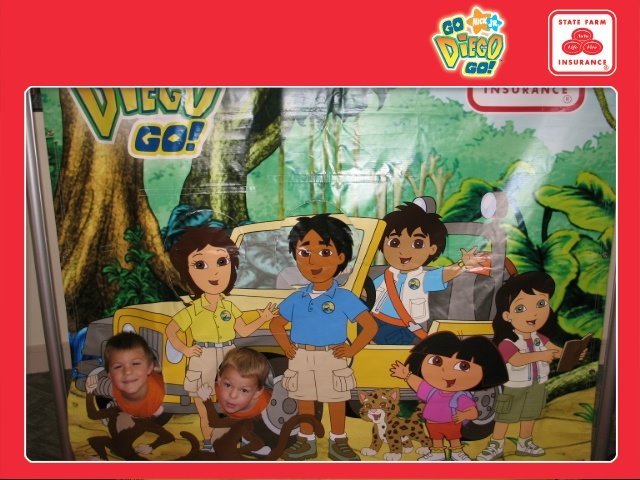Dear God,
Please be with those who are hurting today. Touch these women and children with your healing power. Cause conviction to fall on the men who are victimizing them. Please bring healing to this nation. Show them Your Son. Amen
Rape is weapon in Kenyan violence
By KATY POWNALL, Associated Press Writer Wed Feb 13, 2:03 PM ET
NAIROBI, Kenya - Looting, arson and murder have become hallmarks of Kenya's conflict over a disputed presidential election. Another, less talked about tactic in the violence that has degenerated into ethnic clashes: rape.
Dr. Joseph Osoo, who runs a tin-roofed, two-room clinic in Nairobi's Mathare slum, said he was overwhelmed by the number of women and girls who came for treatment and by the brutality of their ordeals.
"During the days immediately after the election I was treating up to 45 rape victims a day," he said. Usually, he treats one rape victim a week.
One 10-year-old girl suffered a ruptured cervix as the result of her attack, another woman was cleaved across the top of her thighs with a machete and left to bleed to death, he said.
"What is unusual is that most cases are gang rapes, which I have never seen before," he said.
Lucy Kiama, who heads the Gender Violence Recovery Center at Nairobi Women's Hospital, said she also has seen "a huge increase in incidences of sexual violence in the postelection period."
The hospital treated 135 sexually assaulted women and children — one just 2 years old — in the three weeks after the Dec. 27 election that the opposition accuses the president of stealing.
Kiama said the numbers may be even higher. The general violence and lack of transport during skirmishes mean many victims never make it to the hospital to report rape, she said.
More than 1,000 people have died and some 600,000 have fled their homes in the violence that has followed the disputed election. Much of the upheaval has pitted ethnic groups linked to politicians against one another, including members of President Mwai Kibaki's Kikuyu tribe, long resented for their prominence in Kenya's politics and business.
High-level talks may soon offer a solution to the dispute between Kibaki and opposition leader Raila Odinga over the election. But the consequences of the turmoil are likely to be far-reaching in a country long seen as one of Africa's most stable.
Many of the thousands of Kenyans displaced by ethnic violence may never return home, meaning the tribal map of the country has been altered and stability undermined. The rapes, too, are likely to weigh on the social and family life of Kenya for years to come and could even set back the fight against AIDS.
"The perpetrators target females from other tribes to hurt their dignity," Kiama said. "Life will never be the same for a woman who has been raped, the stigmatization is there and her marriage may break down."
One Kikuyu widow said she received a cell phone text message: "They are coming to get you. Get out." When the anonymous sender failed to answer her calls, she dismissed it as a hoax.
But two hours later, the woman was gang-raped in front of her 4-year-old son — just hours after the election results were announced. Luo attackers "shouted no Raila, no peace," she recalled, twisting a handkerchief in her hands.
"This attack was tribal, because we are Kikuyu. We even knew some of them, they pass us on the street," she said.
She shares a house with four other Kikuyu women in the Mathare slum, an area which has seen some of the worst urban violence since the election result was announced. All five were raped and beaten for three hours, she said.
Since the night of the attack, the widow, her son and her friends have lived in a makeshift Red Cross displacement camp in Mathare. She says they take turns keeping watch at night.
UNICEF has reported a rise in child rapes in Kenya and warned that escalating sexual violence would eventually show up in the country's HIV statistics.
Even in the relative safety of displacement camps preliminary U.N. reports show that girls and women are forced to trade sex for food and protection. Opportunistic attacks occur during the night on the way to the latrine.
In its annual global appeal for funding released Tuesday, UNICEF noted women and children in conflict zones around the world were increasingly victims of rape and sexual violence, creating treatment, counseling and other needs humanitarian agencies needed to address.
"We must make sure that children and women are protected as much as possible from these atrocities, and that those responsible for these crimes are eventually brought to justice," Hilde Johnson, UNICEF's deputy executive director, said at a news conference in Geneva on Tuesday.
Wednesday, February 13, 2008
Subscribe to:
Post Comments (Atom)





2 comments:
No comment. I wouldn't know what to say. Just wanted to say I will pray for this hurting nation.
So heartbreaking how Africa as a continent suffers such atrocities.
Post a Comment